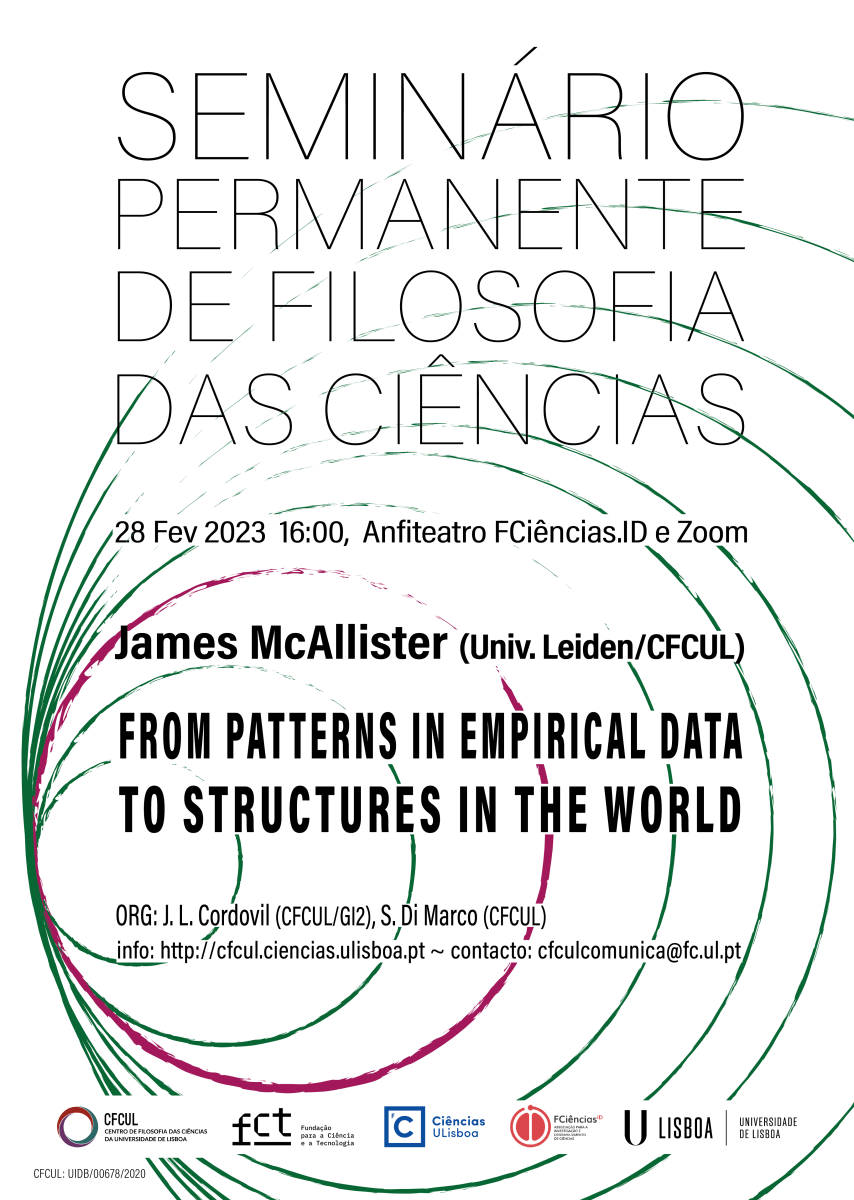Por James W. McAllister (Instituut voor Wijsbegeerte, Universiteit Leiden & CFCUL).
Almost everyone agrees that evidence about structures in the world comes in the form of patterns that empirical data sets exhibit. Any data set, however, can be mathematically decomposed into any conceivable pattern and a corresponding noise level. How to respond to this proliferation? Most writers distinguish two classes of patterns that empirical data sets exhibit: real patterns, which carry information about structures in the world, and other patterns, which are uninformative. I will argue that this response cannot be maintained: there is no objective criterion to distinguish real and other patterns in empirical data sets. In particular, neither the degree to which a pattern supports successful prediction, nor the properties of the noise term associated with a pattern provides a basis for picking out real patterns. The way out is, I suggest, to accept that all patterns in empirical data sets, irrespective of any such features, are evidence of structures in the world. This means that empirical data provide evidence that the world contains all possible structures. The latter claim is more plausible than it sounds, as I will try to show in conclusion.
Transmissão via Zoom (pw: 964057) - vídeo do seminário já disponível!


